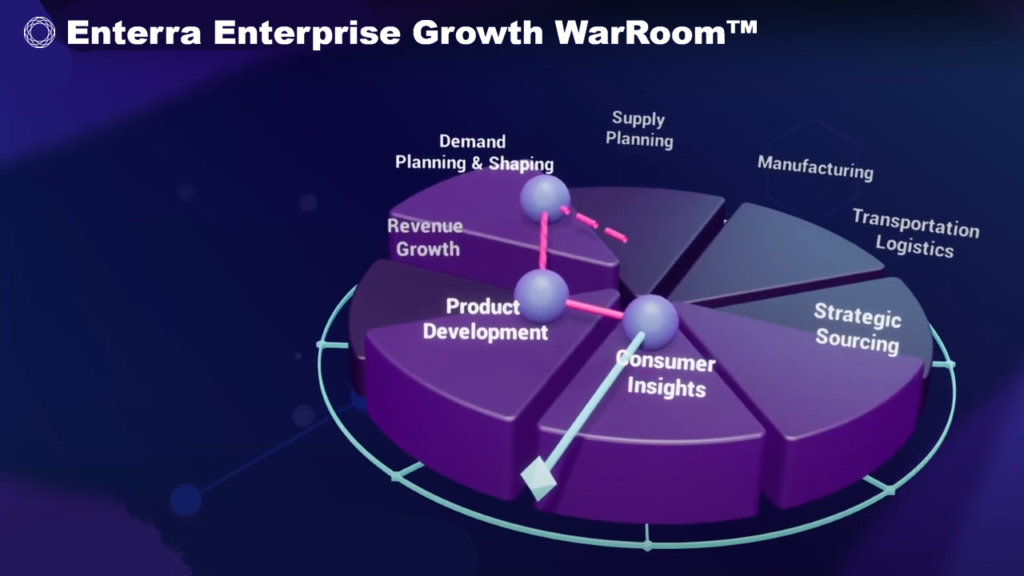A year ago, a nervous world faced an uncertain economic future. At the time, journalist Jaren Kerr reported, “Corporate America is facing its sharpest drop in profits since the early stages of the coronavirus pandemic … as high inflation squeezes margins and fears of an impending recession hold back demand.”[1] Even though it appears the global economy is headed for a soft landing — with America leading the way — the news is not all good. Recently, Thibaud Molin, a partner at the KYU, told reporters at a press conference, “The world has entered a zone of uncertainty. Geopolitical crises are unfolding, with a physical manifestation of tensions in the Red Sea.”[2] Journalist Camille Rustici adds, “[Houthi attacks on Red Sea shipping is fallout from the] resumption of the Israeli-Palestinian conflict.” She also notes, “The slowdown in China’s economic growth fuels concerns about an acceleration in its ambitions concerning Taiwan to divert public attention from poor economic results. In addition, there are increasingly numerous constraints on free trade, including tariff increases and embargoes. According to the authors of the 2024 supply chain risks barometer, this growing instability is already impacting international trade. … This trend could persist and even intensify this year, warn the authors. For them, 2024 is likely to be a pivotal year geopolitically.”[3]
Gaming the World’s Complexity
The “zone of uncertainty” touches every part of the global economy and global supply chain — from procurement to manufacturing to logistics to sales. Consider, for instance, the plight of McDonald’s, the global fast food chain. The Associated Press (AP) reports, “McDonald’s got a glimpse of what’s to come … when it lost sales in the Middle East and other markets due to the war in Gaza and saw fewer visits from lower-income consumers in the U.S. … Customers in the Middle East were angered after McDonald’s Israel — which is operated by a local franchisee — announced in October [2023] it was providing free meals to Israeli soldiers. In response, some franchisees, like McDonald’s Oman, announced donations to relief efforts in Gaza. Sales have since dropped in Muslim-majority countries like Malaysia and Indonesia as well as countries with large Muslim populations like France.”[4] The AP also reports, “McDonald’s wasn’t the only U.S. company seeing backlash from the war in recent months. Starbucks said that it faced boycotts in the Middle East and elsewhere because of its perceived support for Israel.”
Starbucks, however, cannot blame it faltering sales solely on war-related boycotts. Business correspondent Emily Stewart explains, “Starbucks has seen negative headlines over how it’s handling relations with workers attempting to unionize, many of whom walked off the job in November [2023] on its annual Red Cup Day, when it gives out free reusable seasonal cups.”[5] Stewart also points to boycotts related to the Israel/Gaza conflict. However, Sara Senatore, senior research analyst at Bank of America, told Stewart, “I don’t think it’s the protests that are driving this. This is not the first time that we’ve seen this kind of activity, and so it’s hard, in my view, to conclude that’s the reason that traffic has been so slow.” She also noted that “the timeline on foot traffic declines doesn’t really line up with the boycotts.”
Harry Moser, founder of the Reshoring Initiative, and his colleague Daniel O’Hara, point out that geopolitical turmoil as well as natural and manmade disasters combine in ways that complicate corporate decision-making. They write, “Companies [that have] grown accustomed to the convenience and efficiency of just-in-time (JIT) deliveries now have little patience for weeks or months of delay. These companies now have two choices: dramatically increase inventories and stick with offshore suppliers, or continue to benefit from JIT via the quick response of domestic suppliers. The choice depends on the responsiveness of supply chains, the margin lost due to stocking-out, the difference in component pricing and the probability and likely duration of disruption. The challenge is to compare the dollars or pennies of marginal added cost of sourcing a component at home vs. the expected value of the thousands of dollars gained in margin and future business by being able to ship on time and retain happy customers.”[6]
Characterizing the complicated activity of optimizing operations in today’s world “a challenge” understates the enormity of the task. At Enterra Solutions®, we recognized that current corporate capabilities simply don’t rise to the challenge. That’s why we created the Enterra Enterprise Growth WarRoom™ and Enterra Business WarGaming™ offerings for consumer products and retail companies (CP and Retail). The Enterprise Growth WarRoom combines the talent of seasoned professionals, who are well-versed in the global marketplace, with autonomous Intelligence Agents embedded in the Enterra Business Wargaming solution that can run countless simulations to derive insights and recommendations to help companies achieve their revenue, share, margin, and profit goals. The new Enterprise Growth WarRoom and Enterra Business WarGaming capabilities address the need for increased agility within the CP and Retail market by analyzing the external factors impacting companies’ operations and developing system-generated recommendations for strategy development and execution. Our initial application of this technology-led business management approach focuses on driving growth and profit through the levers of holistic revenue growth management. The following video provides an idea of how this capability works.
We understand that the rate of change experienced by companies due to inflation, changeable consumer behavior, challenging supply chains, and other macro issues happen faster than organization’s can adapt with their existing tools and processes. Guided by Enterra’s Strategic Intelligence Unit, Enterra’s Intelligent Agent-driven offering delivers a quantitative system-based approach to driving growth, competitiveness, and resiliency for global organizations.
Concluding Thoughts
As I noted in the press release announcing the Enterprise Growth WarRoom capability, “Companies across the globe are faced with the complex challenge of navigating an unprecedented and complex market landscape while maximizing corporate objectives. They are seeking solutions that will help them better interpret market signals and make strategic decisions that will drive market valuations. Enterra’s Enterprise Growth WarRoom is designed to meet this demand and provides a unique approach that drives competitive advantage for clients through a blend of AI technology and cutting-edge autonomous business management science.” Today’s headlines confirm that wargaming capabilities can play an important role in today’s business planning. A few years back, business advisor Alan Gershenhorn noted, “Competition is coming from all corners of the globe — and it’s not just traditional competitors who want to sneak up on you and eat your lunch. The next major threat to your business might not even exist yet.”[6] Gaming can help. The late Nobel prize–winning economist Thomas Schelling explained, “Games have one quality that separates them qualitatively from straightforward analysis and permits them to generate insights that could not be acquired through analysis, reflection, and discussion. That quality can be illustrated by the impossibility theorem: one thing a person cannot do, no matter how rigorous his analysis or heroic his imagination, is to draw up a list of the things that would never occur to him.”[7]
Footnotes
[1] Jaren Kerr, “US companies face biggest decline in profits since Covid shutdowns,” Financial Times, 10 April 2023.
[2] Camille Rustici, “Geopolitical Crises, Climate Change, Shortages: The 10 Supply Chain Risks for 2024,” Direct Industry E-Magazine, 26 January 2024.
[3] Ibid.
[4] Staff, “After a Bumpy End to a Banner Year, McDonald’s Says Sales Growth Will Moderate in 2024,” U.S. News & World Report, 5 February 2024.
[5] Emily Stewart, “Starbucks has lost $11 billion market value, and not because of boycotts,” Vox, 13 December 2023.
[6] Alan Gershenhorn, “When the Next Threat to Your Business Might Not Exist Yet,” LinkedIn, 3 May 2016.
[7] Thomas Schelling, “The role of war games and exercises.” In A. Carter, J. Steinbruner, & Zraket, C. (Eds.), Managing nuclear operations, Washington, DC: The Brookings Institution, 1987, p. 436.




